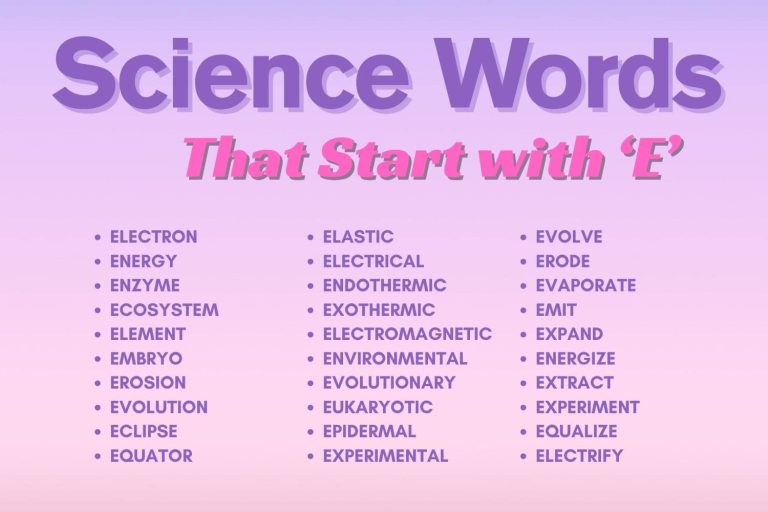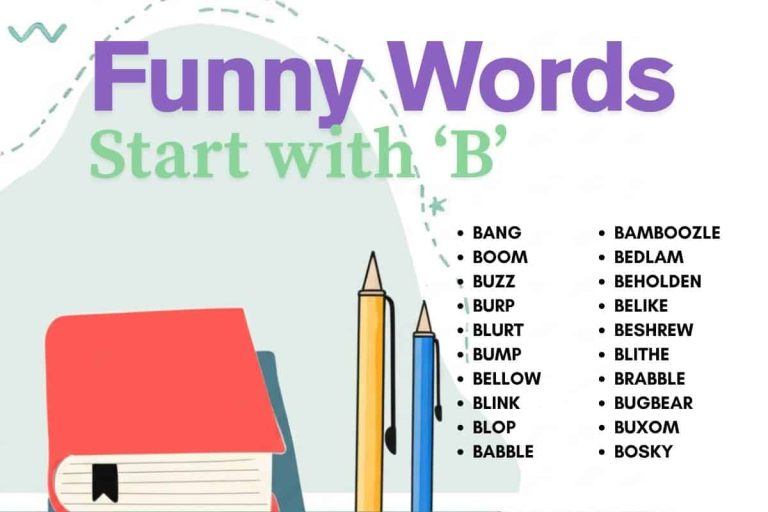60+ Idioms for Life: Mastering Everyday Expressions
Life is full of twists, turns, challenges, and triumphs — and the English language captures all of it through powerful and colorful idioms for life. These expressions reflect the ups and downs we all face, offering wisdom, humor, and perspective in just a few words.
Whether it’s “when life gives you lemons, make lemonade” or “roll with the punches,” idioms help us talk about life in ways that are relatable, meaningful, and memorable. Using life-related idioms adds richness to your communication, allowing you to express complex thoughts and emotions with clarity and flair.
They often carry deep cultural meaning and are used in everyday conversations, literature, and motivational speech to offer insight, encouragement, or a dose of humor.
Examples of Idioms for Life
Here, we’ll explore a wide range of idioms that beautifully capture the experience of living. With explanations and examples, you’ll be ready to use them naturally as you talk about life’s journey.
Idioms about Challenges and Difficulties
| Idiom | Meaning | Example Sentence |
|---|---|---|
| Hit a snag | Encounter an unexpected problem | We hit a snag in our project when the funding was delayed. |
| Be in hot water | Be in trouble | He’s in hot water with his boss for being late again. |
| Go through the wringer | Experience a difficult or exhausting ordeal | She went through the wringer during her divorce. |
| Face the music | Accept the consequences of one’s actions | He knew he had to face the music after lying to his parents. |
| Bite the bullet | Force oneself to do something unpleasant or difficult | I had to bite the bullet and tell him the truth. |
| A hard pill to swallow | A difficult fact to accept | Losing the game was a hard pill to swallow. |
| Against the clock | Rushing to meet a deadline | We were working against the clock to finish the report on time. |
| Barking up the wrong tree | Pursuing a mistaken idea or course of action | If you think I’m the one who broke the vase, you’re barking up the wrong tree. |
| A storm in a teacup | A lot of unnecessary excitement about something trivial | Their argument was just a storm in a teacup; they’ll be friends again soon. |
| When it rains, it pours | When bad things happen, they tend to happen all at once | First, I lost my job, and then my car broke down. When it rains, it pours! |
| Between a rock and a hard place | Faced with two equally difficult choices | I was between a rock and a hard place: quit my job or work for a terrible boss. |
| Get something off your chest | Confess something that has been bothering you | I needed to get it off my chest and tell her how I really felt. |
| Keep your head above water | Manage to survive financially or otherwise | It’s hard to keep your head above water with the rising cost of living. |
| On the ropes | Close to defeat or failure | The company was on the ropes before the new CEO took over. |
| Skating on thin ice | Taking a risk; in a precarious situation | He’s skating on thin ice with his constant tardiness. |
| The last straw | The final problem in a series of problems that makes you lose patience | His constant complaining was the last straw; I couldn’t take it anymore. |
| Up against it | Facing great difficulties | We were really up against it when the project was delayed. |
| Walking on eggshells | Being very careful not to offend someone | I feel like I’m walking on eggshells around my boss lately. |
| A thorn in one’s side | A persistent problem or annoyance | That leaky faucet is a real thorn in my side. |
| Tough row to hoe | A difficult task to undertake | Trying to start a business in this economy is a tough row to hoe. |
Idioms about Success and Achievement
Celebrating success is an important part of life. Here are some idioms to describe achieving goals and experiencing positive outcomes.
| Idiom | Meaning | Example Sentence |
|---|---|---|
| Hit the jackpot | Have great success or good fortune | They hit the jackpot when their invention became a bestseller. |
| Make a killing | Earn a lot of money quickly | He made a killing in the stock market. |
| Come out on top | Be the winner; succeed despite difficulties | Despite the challenges, she came out on top in the competition. |
| Go places | Be successful in the future | He’s a talented young man; he’s going places. |
| On the ball | Alert and competent | Our new employee is really on the ball; she learns quickly. |
| A feather in one’s cap | An achievement to be proud of | Winning the award was a real feather in her cap. |
| Knock it out of the park | Do something exceptionally well | He knocked it out of the park with his presentation. |
| Make the grade | Reach the required standard | She worked hard and finally made the grade in her exams. |
| Pass with flying colors | Succeed easily and impressively | He passed the test with flying colors. |
| Reap the rewards | Enjoy the benefits of one’s efforts | After years of hard work, they are finally reaping the rewards. |
| Strike gold | Discover something very valuable or successful | The company struck gold with its new product line. |
| Take off | Become successful or popular quickly | Her career really took off after she published her first book. |
| At the top of your game | Performing at your best | The athlete is at the top of his game right now. |
| Ahead of the curve | More advanced or innovative than others | The company is ahead of the curve in its use of technology. |
| Climb the ladder | Advance in a profession or organization | He worked hard to climb the corporate ladder. |
| Get your foot in the door | Get a first opportunity to work in a particular organization or field | Interning is a great way to get your foot in the door. |
| Make a name for yourself | Become well-known and respected | She is determined to make a name for herself in the art world. |
| On easy street | In a comfortable financial situation | After winning the lottery, they were on easy street. |
| Rest on your laurels | Be satisfied with past achievements and not make an effort to continue to succeed | He achieved a lot early in his career, but he didn’t rest on his laurels and continued to work hard. |
| Smooth sailing | Easy and without problems | Once we got past the initial challenges, it was smooth sailing. |
Idioms about Relationships
Relationships are a fundamental part of life, and there are many idioms to describe the dynamics of human connections.
| Idiom | Meaning | Example Sentence |
|---|---|---|
| See eye to eye | Agree with someone | They don’t always see eye to eye on political issues. |
| Get along with | Have a good relationship with someone | I get along with my colleagues very well. |
| On the same wavelength | Thinking in a similar way | We’re on the same wavelength; we understand each other perfectly. |
| Bury the hatchet | Make peace after a quarrel | They decided to bury the hatchet and become friends again. |
| Clear the air | Resolve a misunderstanding or tension | We need to clear the air after our argument. |
| Fall out with | Have a disagreement and stop being friends | They fell out with each other over a business deal. |
| Hit it off | Immediately like each other | We hit it off as soon as we met. |
| Tie the knot | Get married | They decided to tie the knot after dating for five years. |
| Wear your heart on your sleeve | Display your emotions openly | She wears her heart on her sleeve, so everyone knows how she’s feeling. |
| A shoulder to cry on | Someone who offers sympathy and support | She’s always been a shoulder to cry on for her friends. |
| Birds of a feather flock together | People who are similar tend to associate with each other | They’re both artists; birds of a feather flock together. |
| Close to someone’s heart | Important or dear to someone | This charity is very close to her heart. |
| Get off on the wrong foot | Start a relationship badly | They got off on the wrong foot when they first met. |
| Have a soft spot for someone | Feel affection for someone | He has a soft spot for his younger sister. |
| Keep someone at arm’s length | Avoid being too friendly or close to someone | She keeps most people at arm’s length. |
| Like two peas in a pod | Very similar and always together | They’re like two peas in a pod; they do everything together. |
| Lovey-dovey | Excessively affectionate | They’re always so lovey-dovey in public. |
| On the rocks | Experiencing difficulties (usually in a relationship) | Their marriage has been on the rocks for a while now. |
| Through thick and thin | Through good times and bad times | They’ve been together through thick and thin. |
| Two’s company, three’s a crowd | A third person would spoil the intimacy of two people | Let’s go out just the two of us; two’s company, three’s a crowd. |
Idioms about Time and Aging
Time is a constant presence in our lives, and many idioms reflect our perception of its passage and the aging process.
| Idiom | Meaning | Example Sentence |
|---|---|---|
| Time flies | Time passes quickly | Time flies when you’re having fun. |
| Against time | In a hurry to meet a deadline | We’re racing against time to finish the project. |
| Around the clock | All day and all night | The hospital staff works around the clock to care for patients. |
| Better late than never | It’s better to do something late than not at all | I know I’m late, but better late than never. |
| Call it a day | Stop working on something | Let’s call it a day and finish the rest tomorrow. |
| In the nick of time | Just in time | We arrived at the airport in the nick of time. |
| Once in a blue moon | Very rarely | We only go to that restaurant once in a blue moon. |
| The time is ripe | The perfect time to do something | The time is ripe for us to launch our new product. |
| Turn back the clock | Return to an earlier time | I wish I could turn back the clock and make different choices. |
| A blast from the past | Something that reminds you of the past | Seeing that old photo was a blast from the past. |
| Back to the drawing board | Start over from the beginning | The project failed, so it’s back to the drawing board. |
| Day in, day out | Every day for a long period of time | I do the same thing day in, day out. |
| For the time being | Temporarily | I’m living with my parents for the time being. |
| Get a new lease on life | Experience a renewed sense of energy and purpose | After retiring, he got a new lease on life. |
| Lost track of time | Not be aware of how much time has passed | I was so engrossed in the book that I lost track of time. |
| Make up for lost time | Do something quickly to compensate for lost time | We need to make up for lost time and work harder. |
| On borrowed time | Living longer than expected | After his heart surgery, he felt like he was living on borrowed time. |
| Take your time | Not rush | Take your time; there’s no need to hurry. |
| The eleventh hour | The last possible moment | They reached an agreement at the eleventh hour. |
| Behind the times | Old-fashioned; not up-to-date | His ideas are a little behind the times. |
Idioms about Decisions and Choices
Making decisions is an integral part of life. The following idioms reflect the process of making choices and dealing with their consequences.
| Idiom | Meaning | Example Sentence |
|---|---|---|
| Call the shots | Be in charge; make the decisions | The manager calls the shots in this department. |
| Cross that bridge when you come to it | Deal with a problem when it arises | We’ll cross that bridge when we come to it. |
| Get the ball rolling | Start something | Let’s get the ball rolling on this project. |
| Make up your mind | Decide | I can’t make up my mind about which car to buy. |
| On the fence | Undecided | I’m still on the fence about whether to accept the job offer. |
| Take the plunge | Make a decision despite feeling nervous | I decided to take the plunge and start my own business. |
| Weigh your options | Consider the choices carefully | You should weigh your options before making a decision. |
| A leap of faith | An act of believing in something when proof is not available | Starting the business was a leap of faith, but it paid off. |
| Back to square one | Start over from the beginning | The deal fell through, so we’re back to square one. |
| Burn your bridges | Do something that makes it impossible to return to a previous situation | He burned his bridges when he quit his job without notice. |
| Go out on a limb | Take a risk | I’m going out on a limb and predicting that the team will win. |
| Have it both ways | Get the benefits of two conflicting situations | You can’t have it both ways; you have to choose one or the other. |
| In two minds | Unable to decide | I’m in two minds about whether to go to the party. |
| No-brainer | An easy decision | Accepting the job offer was a no-brainer. |
| Play it safe | Avoid risks | I decided to play it safe and invest in a low-risk fund. |
| Second thoughts | Doubts after making a decision | I’m having second thoughts about moving to a new city. |
| Take a back seat | Allow someone else to take control | I decided to take a back seat and let him lead the project. |
| The lesser of two evils | The less unpleasant of two bad choices | Choosing between the two candidates was choosing the lesser of two evils. |
| Think outside the box | Think creatively and unconventionally | We need to think outside the box to solve this problem. |
| When the rubber meets the road | When something is put to the test; the moment of truth | When the rubber meets the road, we’ll see if our plan works. |
Usage Rules for Idioms
Using idioms correctly requires understanding their specific meanings and contexts. Here are some important rules to keep in mind:
- Do not take idioms literally: The meaning of an idiom is figurative, not literal.
- Use idioms appropriately: Consider the audience and the situation. Idioms are generally more suitable for informal conversations than formal writing.
- Be aware of regional variations: Some idioms are more common in certain regions or countries than others.
- Pay attention to grammar: Ensure that the idiom fits grammatically into the sentence. For example, the verb tense should be correct.
- Context is key: The meaning of an idiom can change depending on the context in which it is used.
In many cases, the meaning of an idiom can be guessed from the context, but it’s always best to confirm its meaning in a dictionary or with a native speaker. Over time, with exposure and practice, the correct usage of idioms will become more natural.
Common Mistakes with Idioms
Using idioms incorrectly can lead to misunderstandings or sound awkward. Here are some common mistakes to avoid:
| Incorrect | Correct | Explanation |
|---|---|---|
| He was pulling my leg. | He was pulling my leg. | This idiom is correct as is. It means to tease or joke with someone. |
| It’s raining cats and dogs. | It’s raining cats and dogs. | This idiom is correct as is. It means it’s raining very heavily. |
| I am feeling under the weather. | I am feeling under the weather. | This idiom is correct as is. It means to feel unwell or slightly sick. |
| Break a leg! | Break a leg! | This idiom is correct as is. It is used to wish someone good luck, especially before a performance. |
| He hit the nail in the head. | He hit the nail on the head. | The correct idiom is “hit the nail on the head,” not “in.” |
| I’m all ears. | I’m all ears. | This idiom is correct as is. It means you are listening attentively. |
| He let the cat out from the bag. | He let the cat out of the bag. | The correct idiom is “let the cat out of the bag,” not “from.” |
| It costs an arm and leg. | It costs an arm and a leg. | The correct idiom is “an arm and a leg,” not “arm and leg.” |
| Once at a blue moon. | Once in a blue moon. | The correct idiom is “once in a blue moon,” not “at.” |
| Take it with a grain of salt. | Take it with a pinch of salt. | The correct idiom is “take it with a pinch of salt,” not “grain.” |
Practice Exercises
Test your understanding of idioms with the following exercises. Choose the correct idiom to complete each sentence.
Exercise 1: Choose the correct idiom.
| Question | Options | Answer |
|---|---|---|
| 1. After failing the exam, he had to ________ and study harder. | a) face the music, b) bite the bullet, c) hit a snag | b) bite the bullet |
| 2. They ________ when they discovered they had similar interests. | a) hit it off, b) fell out with, c) see eye to eye | a) hit it off |
| 3. We’re ________ to finish the project by the deadline. | a) against time, b) time flies, c) call it a day | a) against time |
| 4. It was a ________ decision to invest in that company. | a) on the fence, b) no-brainer, c) weigh your options | b) no-brainer |
| 5. After a difficult year, they are finally ________ of their hard work. | a) striking gold, b) reaping the rewards, c) making a killing | b) reaping the rewards |
| 6. The company was ________ after the scandal. | a) on the ropes, b) on easy street, c) at the top of their game | a) on the ropes |
| 7. They decided to ________ and resolve their differences. | a) bury the hatchet, b) get off on the wrong foot, c) wear their heart on their sleeve | a) bury the hatchet |
| 8. Sometimes it feels like I’m just ________, doing the same thing every day. | a) lost track of time, b) making up for lost time, c) day in, day out | c) day in, day out |
| 9. She decided to ________ and start her own business. | a) take a back seat, b) take the plunge, c) think outside the box | b) take the plunge |
| 10. His ideas are a little ________; he needs to modernize his approach. | a) behind the times, b) around the clock, c) better late than never | a) behind the times |
| Question | Answer |
|---|---|
| 1. He had to ________ after he lied to his boss. | face the music |
| 2. They ________ when they realized they both loved hiking. | were on the same wavelength |
| 3. It’s hard to ________ with the rising cost of living. | keep your head above water |
| 4. After years of saving, they are finally ________. | on easy street |
| 5. They ________ over a minor disagreement. | fell out with each other |
| 6. Winning the championship was a real ________ for the team. | feather in their cap |
| 7. Let’s ________ and discuss our problems openly. | clear the air |
| 8. He felt like he was ________ after surviving the accident. | living on borrowed time |
| 9. We need to ________ to solve this complex issue. | think outside the box |
| 10. We’ll ________ when the funding is approved. | get the ball rolling |
Frequently Asked Questions
- What is the best way to learn idioms?The best way to learn idioms is through exposure and practice. Read widely, listen to native speakers, and try to use idioms in your own conversations and writing. Flashcards and online resources can also be helpful, but the key is to actively engage with the language.
- How can I avoid using idioms incorrectly?To avoid using idioms incorrectly, always double-check their meaning in a dictionary or with a native speaker. Pay attention to the context in which the idiom is used and make sure it fits grammatically into the sentence. If you’re unsure, it’s better to use a more literal expression.
- Are idioms the same in all English-speaking countries?No, idioms can vary significantly between different English-speaking countries and regions. Some idioms are specific to the United States, while others are more common in the United Kingdom, Australia, or Canada. Be aware of these regional variations and try to learn idioms that are relevant to the context in which you are communicating.
- Why are idioms important for language learners?Idioms are important for language learners because they are a vital part of everyday communication. Understanding idioms will help you comprehend native speakers and express yourself more naturally. Mastering idioms can also improve your overall fluency and confidence in the English language.
- How can I tell if a phrase is an idiom?You can tell if a phrase is an idiom if its meaning is different from the literal meanings of the individual words it contains. If the phrase sounds strange or nonsensical when taken literally, it is likely an idiom. Consulting a dictionary or asking a native speaker can confirm your suspicion.
- Is it okay to mix idioms from different regions?While it’s generally best to stick to idioms that are commonly used in the region you’re in, mixing idioms from different regions is not necessarily wrong, but it might sound a bit unusual to native speakers. It’s more important to use idioms correctly and appropriately than to worry too much about regional variations. However,it’s a good idea to be aware of the origin of the idiom and who you are speaking to.
Conclusion
Idioms are a fascinating and essential aspect of the English language. By understanding their meanings, usage rules, and common pitfalls, you can significantly enhance your communication skills and cultural understanding.
Continue to practice and explore new idioms to enrich your vocabulary and express yourself more vividly. Whether you’re navigating challenges, celebrating successes, or building relationships, idioms offer a colorful and expressive way to convey your thoughts and feelings.





